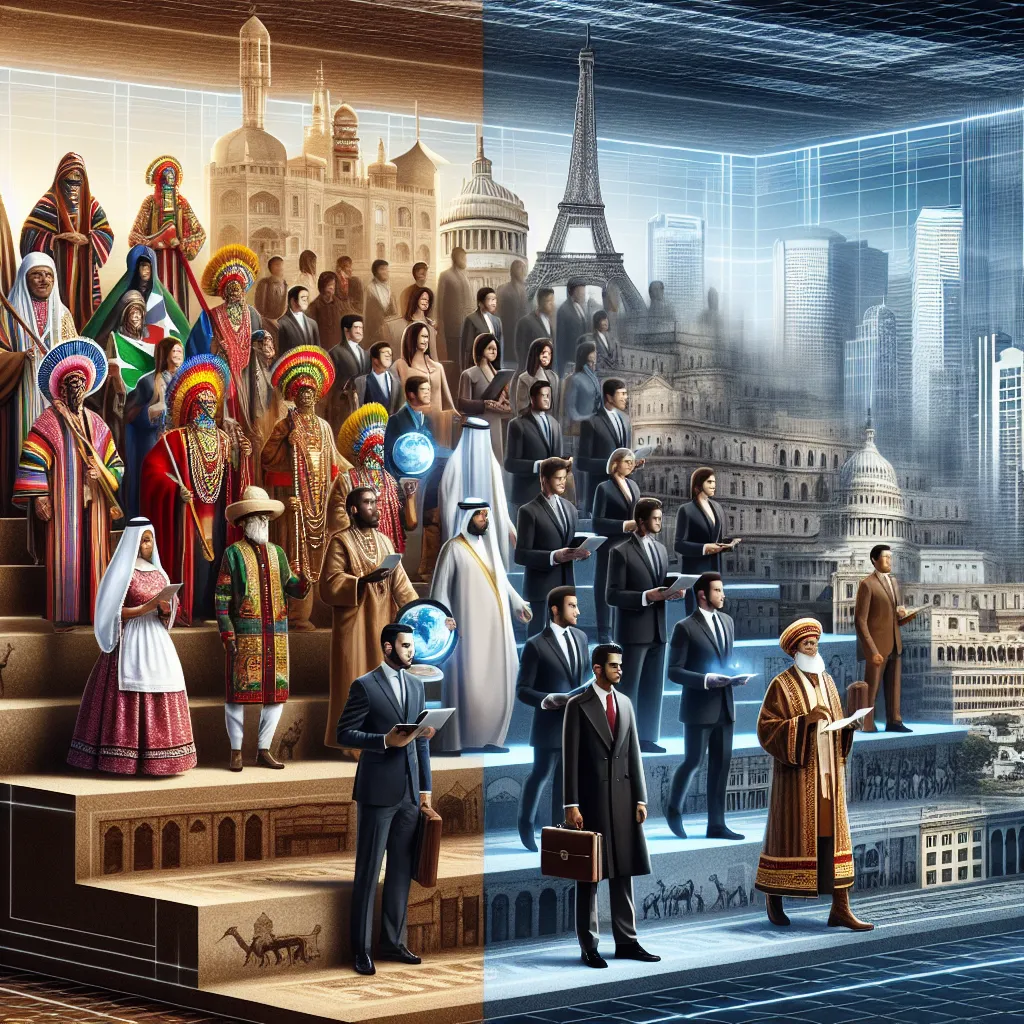Cultural heritage and national identity are significant topics that frequently appear in IELTS Writing Task 2 questions. These themes are not only relevant to contemporary global issues but also provide ample opportunities for test-takers to showcase their analytical and writing skills. Based on the analysis of past IELTS exams and current trends, we can expect to see questions related to these topics in future tests. Let’s explore a sample question and learn how to craft a high-scoring response.
Analyzing the Question
Let’s consider the following IELTS Writing Task 2 question:
Some people believe that preserving traditional culture is crucial for maintaining national identity, while others argue that embracing global influences is more important for a country’s progress. Discuss both views and give your own opinion.
This question addresses the tension between preserving traditional culture and adopting global influences, a common dilemma in our increasingly interconnected world. It requires you to discuss both perspectives and present your own stance on the issue.
Sample Essay
Here’s a model essay that addresses the question effectively:
In today’s globalized world, the debate between preserving traditional culture and embracing global influences has become increasingly relevant. While some argue that maintaining cultural heritage is essential for national identity, others believe that openness to international trends is crucial for a country’s development. This essay will examine both viewpoints before presenting my own perspective on this complex issue.
Those who advocate for preserving traditional culture argue that it is the foundation of national identity. They believe that cultural practices, customs, and historical heritage are what make a nation unique and distinguish it from others. Moreover, traditional culture often embodies valuable wisdom and social norms that have been passed down through generations. By maintaining these traditions, a country can ensure a sense of continuity and provide its citizens with a strong sense of belonging and pride in their heritage.
On the other hand, proponents of embracing global influences argue that it is essential for a country’s progress and competitiveness in the modern world. They contend that exposure to diverse ideas and practices can lead to innovation, economic growth, and improved quality of life. Furthermore, adopting global trends can foster international understanding and cooperation, which are crucial in our increasingly interconnected world. Countries that resist change and cling too tightly to tradition may risk becoming isolated and falling behind in terms of social and economic development.
In my opinion, the ideal approach lies in striking a balance between these two perspectives. While it is undoubtedly important to preserve core cultural values and traditions that form the essence of national identity, it is equally crucial to be open to positive global influences that can contribute to a country’s progress. This balanced approach allows nations to maintain their unique cultural heritage while also benefiting from the advantages of globalization.
Countries can achieve this balance by carefully selecting which aspects of traditional culture to preserve and which global influences to adopt. For instance, they can maintain traditional art forms, languages, and festivals while embracing modern technologies and educational practices. This way, nations can create a dynamic cultural identity that is rooted in tradition but also adaptive to the changing world.
In conclusion, while preserving traditional culture is vital for maintaining national identity, embracing beneficial global influences is equally important for a country’s progress. The key lies in finding a harmonious balance between these two aspects, allowing nations to retain their unique cultural essence while also thriving in the modern global landscape.
(Word count: 398)

Key Points to Remember When Writing
-
Structure: Ensure your essay has a clear introduction, body paragraphs discussing both views, and a conclusion with your opinion.
-
Balanced argument: Present both sides of the argument fairly before giving your own opinion.
-
Specific examples: Use concrete examples to support your points, which can be drawn from history, current events, or personal knowledge.
-
Cohesion and coherence: Use linking words and phrases to connect your ideas smoothly.
-
Vocabulary: Employ a range of vocabulary related to culture, identity, and globalization.
-
Grammar: Use a variety of sentence structures and tenses to demonstrate your language proficiency.
Important Vocabulary to Remember
Here are some key terms related to cultural heritage and national identity:
-
Cultural heritage (noun) /ˈkʌltʃərəl ˈherɪtɪdʒ/ – The legacy of physical artifacts and intangible attributes of a group or society.
-
National identity (noun) /ˈnæʃənl aɪˈdentɪti/ – A sense of a nation as a cohesive whole, represented by distinctive traditions, culture, and language.
-
Globalization (noun) /ˌɡləʊbəlaɪˈzeɪʃn/ – The process by which businesses or other organizations develop international influence or start operating on an international scale.
-
Tradition (noun) /trəˈdɪʃn/ – The transmission of customs or beliefs from generation to generation.
-
Assimilation (noun) /əˌsɪmɪˈleɪʃn/ – The process of taking in and fully understanding information or ideas.
-
Cultural diversity (noun) /ˈkʌltʃərəl daɪˈvɜːsɪti/ – The existence of a variety of cultural or ethnic groups within a society.
-
Customs (noun) /ˈkʌstəmz/ – Traditional and widely accepted ways of behaving or doing something specific to a particular society, place, or time.
-
Heritage (noun) /ˈherɪtɪdʒ/ – Valued objects and qualities such as cultural traditions, unspoiled countryside, and historic buildings that have been passed down from previous generations.
Conclusion
The topic of cultural heritage and national identity is likely to remain relevant in IELTS Writing Task 2 questions. To prepare effectively, practice writing essays on related themes such as:
- The impact of tourism on local cultures
- The role of language in preserving cultural identity
- The effects of globalization on traditional ways of life
- The importance of teaching cultural heritage in schools
Remember to approach these topics with a balanced perspective, supporting your arguments with specific examples and using a range of appropriate vocabulary. By mastering these skills, you’ll be well-prepared to tackle any question on cultural heritage and national identity in your IELTS Writing Task 2.
For more insights on related topics, you might find these articles helpful: